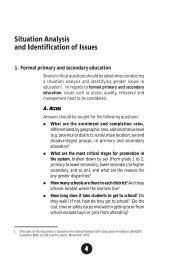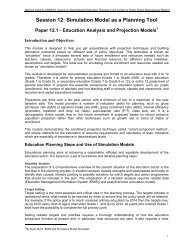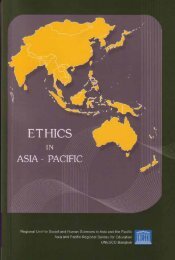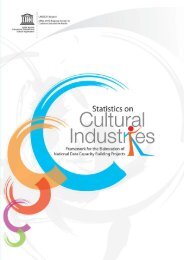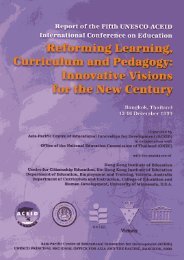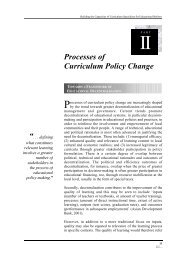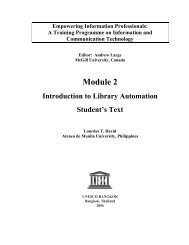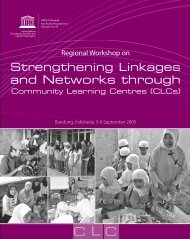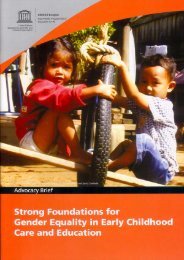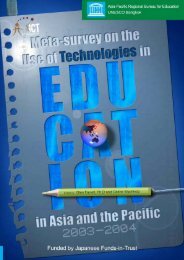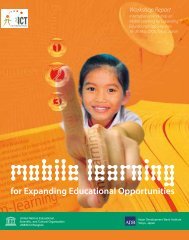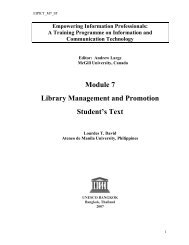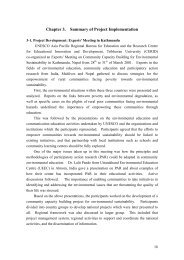Download PDF, 752KB - UNESCO Bangkok
Download PDF, 752KB - UNESCO Bangkok
Download PDF, 752KB - UNESCO Bangkok
You also want an ePaper? Increase the reach of your titles
YUMPU automatically turns print PDFs into web optimized ePapers that Google loves.
List of Projects by Countryeducation is not relevant to girls since there are few role models. Furtherconstraints to recruitment of females for teaching come from culturalconsiderations. Women are not able to stay away from their homesovernight, and it is not possible to train female teachers by appointingmale teacher trainers. Thus traditional forms of teacher training will notincrease the number of female trainees enrolling in courses.The Mobile Female Teacher Training programme began in 1992 with theobjective of increasing the number of trained and certificated femaleprimary school teachers. It is a Ministry of Education project supportedby USAID.The project operates through a Non-Government Organization (NGO)that was established to act as the implementing agency because ofsuspicion of government activities by many rural communities. It wasable to take advantage of the presence of learning coordinators appointedto the province by a World Bank Primary Education Project. Eachcoordinator was responsible for 15 schools. Each village established aVillage Education Committee (VEC) that provided land and a buildingthat could be used as a school. The village was also required to ensurethe security of the teacher. Once established a specially designed 3months teacher training programme was provided to trainees by a groupof mobile trainers who travel to each of the participating villages. Thereis close collaboration between the trainers, the NGO and the VEC.By December 1995 some 750 villages had been involved in the projectand 230 female teachers had been trained, certificated and appointed totheir local schools. However the quality of recruits is a major concernsince girls are selected from villages without any regard to theircompetitive merit or capacity to teach.ContactMr S Ijak Hussain Bukhari, Ministry of Education, Quetta, Baluchistan,Pakistan.31. Multi-grade Environment ProjectMulti-grade teaching is practised in primary schools in Pakistan, but thereis a need to further improve the skills and pedagogy of the country’s350,000 teachers. This project, which began in 1999, is being undertakenby the Primary and Non-Formal Wing of the Ministry of Education, inassociation with <strong>UNESCO</strong>. It has used a cascade model of training toprovide in-service training for all these teachers.54 © Snapshots of Primary and Secondary Education in Asia-Pacific



